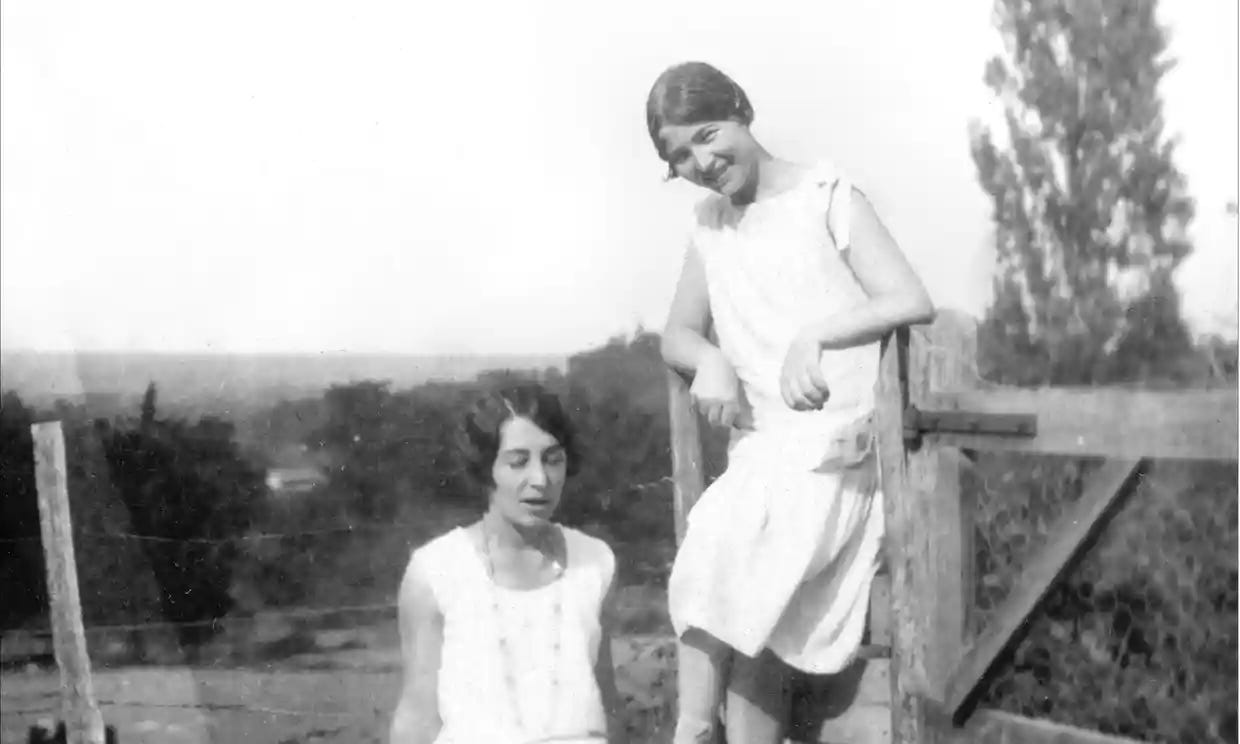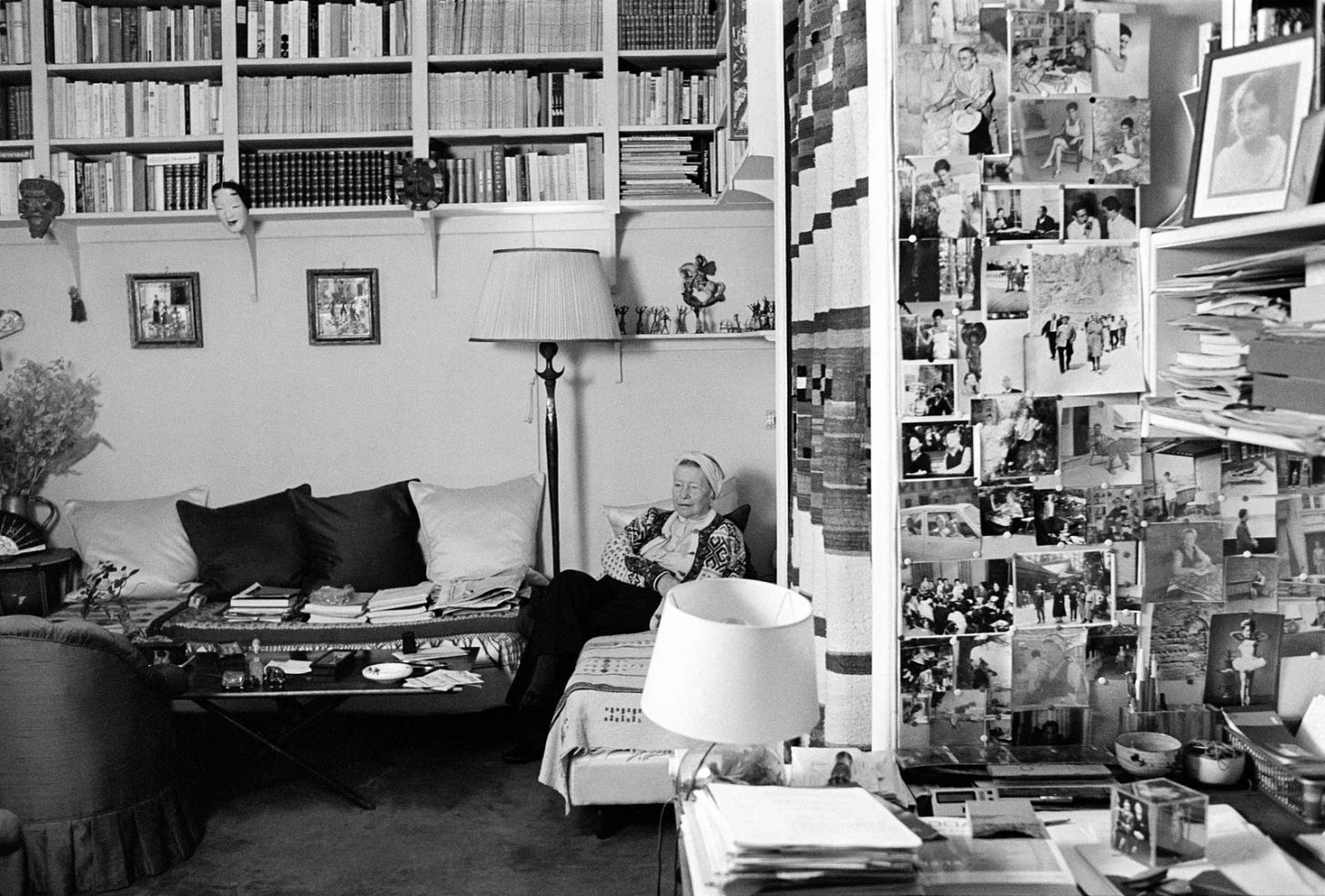The Inseparables is a novella written by Simone de Beauvoir, though it was never published in her lifetime. This story, despite having been fictionalised, is intimate and sincere in its depiction of what was one of Beauvoir’s most impactful friendships, and without a doubt turned her into the thinker she was. Told from the perspective of Sylvie, who stands in for Beauvoir, The Inseparables explores Sylvie’s friendship with Andrée, the avatar of Beauvoir’s childhood friend, a girl named Elisebeth “Zaza” Lacoin.
Sylvie and Andrée meet at age nine, the day Andrée joins Sylvie’s Catholic school in Paris. Andrée changes Sylvie’s life from the moment they meet, and becomes a source of beautiful fascination. Sylvie says of Andrée that “She was one of those prodigies about whom, later on, books would be written.”

Andrée is mischievous, bold and dazzling, while Sylvie feels “intellectually lonely” up until meeting her. When they first meet, Andrée tells Sylvie that she was “burned alive” while cooking potatoes at a campfire as a child. Andrée’s dress caught fire and her right thigh was “grilled to the bone.” This makes Sylvie reflect, “Nothing so interesting had ever happened to me. It suddenly seemed as if nothing had ever happened to me at all.” Sylvie, being the perfect pupil, comes out of her shell because of Andrée, whose mimics of her school teachers makes Sylvie laugh to the point to which she would get in trouble, were it not for her perfect record.
The beginning of the novella is a beautiful meditation on girlhood and female friendships. Sylvie falls in love with Andrée’s mind and intellect. The girls share meaningful conversations about ethics, justice, ways of life, and equality. Living in a time in history in which women could not vote, and were forced to accept a life of marriage and household obligations, dimming oneself in the name of “respectability”, Sylvie concludes that “Life without her would be death.” Deborah Levy describes the story as an “enigma of female friendship that is as intense as a love affair, but that is not sexually expressed.” Inspired by Andrée’s braveness and her captivating sensibility, it seems as though this cerebral love, as Levy calls it, gives Sylvie the courage to be herself and own her beliefs. The intellectual exchanges of their friendship are especially impactful in a time when society did not value women’s minds.
While Andrée believes in God, Sylvie realises at the age of fourteen that she does not. It is around that point that the narrative begins to change, Sylvie becomes intellectually rebellious and a critical thinker, while Andrée grapples with existential despair, and not wanting to be alive anymore. Again, Sylvie’s character closely resembles Beauvoir, and Sylvie’s loss of faith in God is modelled after the author’s own experience. Deborah Levy writes in the book’s introduction that “Literature would eventually take the place of religion in her [Simone de Beauvoir’s] life and fill the void of an evaporated God.” Indeed, rather than feeling dizzied by her loss of faith, Beauvoir described no longer believing in God as “a kind of awareness”, which appears to be mirrored by Sylvie’s increasing clear-headedness and self-assurance in the narrative (Deborah Levy, The Inseparables).
While the story deals with girlhood, and the friendships that arise out of these formative years, and how these friendships develop; the novella shifts as the girls enter their teens, conveying the ways in which the world is constantly trying to “flatten” Andrée (Deborah Levy, The Inseparables).
As the girls grow up, Sylvie begins to notice that Andrée does not quite have the same hold on her as she used to. Sylvie still loves her deeply, but perhaps not to the point of idolising her. Sylvie starts seeing Andrée for her fragility, and tries to help her. Andrée’s dazzling carelessness has turned into sadness, and it has visibly dimmed her. Andrée becomes increasingly torn between, on the one hand, her desire for freedom and emancipation; and on the other hand, her commitment to religion, purity and societal expectations.
Still, Sylvie’s love for Andrée remains transcendent. Sylvie has never loved anyone the same, and all other loves are pale in comparison: “The kind of love where you kiss”—by which she means, a heterosexual romantic relationship that is expected of her —“had no truth for me.”
Sylvie’s love for Andrée reveals her vulnerability, and she dares to love Andrée, despite feeling that Andrée’s mother dislikes her for their “amorous friendship.” And yet, Sylvie’s transcendent love for Andrée is not exactly mutual, it seems as though Andrée’s romantic attachments, or maternal love, take precedence over her friendship with Sylvie. Indeed, Andrée loves her mother, but more than that, her fear of disappointing her mother distances Andrée from her girlhood irreverence. Andrée’s mother is controlling, and only seems concerned with her daughter appropriately carrying out her social duties, preserving her piety and respectability to be married at the right age, to the right man.

As a young woman, Andrée struggles with the push and pull of her mother’s internalised beliefs and the religious conception of purity; and yet there remains a rebellious whisper in her, which makes choosing the “right” path all the more confusing. The pressure of society threatens everything about Andrée, and Sylvie seems to be the only person to notice it.
Andrea’s mother, and to a larger extent, society’s expectations for Andrée, makes her lose herself and get caught between different conceptions of life, losing sight of what her’s is. Simone de Beauvoir never published this novella, perhaps because she never felt she could never fully put to paper Zaza’s spirit, complexities, what she meant to her, and how Zaza continues to haunt her. I find especially touching Sylvie’s love for Andrée (or Simone’s love for Zaza), and relate to her admiration of her friend. There is, after all, nothing quite like girlhood and female friendships. I found this book is deeply moving, and I am grateful that it has made its way to me!



